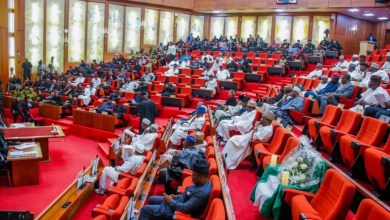Naira Hits New Low, Trading at N1,668 per Dollar in Parallel Market

The Nigerian currency, the Naira, continued its downward trajectory in the parallel market, falling to N1,668 per dollar on Thursday, a significant drop from the N1,600 rate recorded just a day prior. This latest depreciation reflects ongoing volatility and mounting pressure on the country’s exchange rate, driven by persistent demand for foreign currency and limited supply.
The decline highlights broader economic challenges facing Nigeria, including inflationary pressures, reduced foreign reserves, and struggles to stabilize the foreign exchange market. Analysts suggest that factors such as speculative activities, reduced oil revenues, and delays in implementing key economic reforms are exacerbating the Naira’s woes.
In response, the Central Bank of Nigeria (CBN) has been taking measures to improve liquidity in the official market and curb the widening gap between official and parallel exchange rates. However, these efforts have so far had limited success, with market forces continuing to drive depreciation.
The rapid fluctuation in the Naira’s value has raised concerns among businesses and consumers, as it impacts the cost of imports, local production, and overall purchasing power. Experts are calling for more comprehensive policies to address the root causes of the currency instability and restore confidence in the economy.
As the Naira continues to face turbulence, many are watching closely for potential government interventions or market adjustments that could help stabilize the situation.












